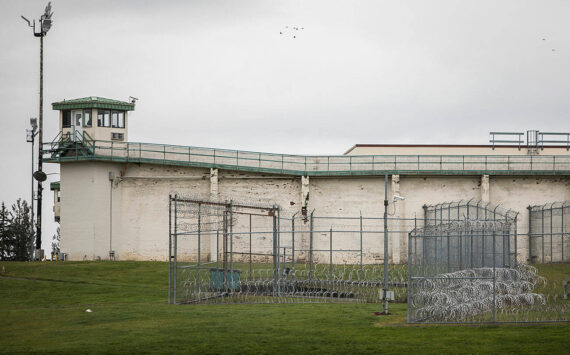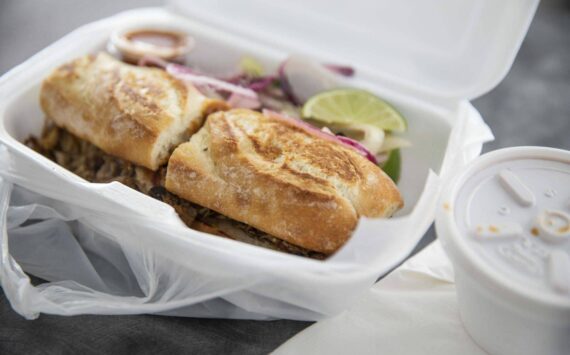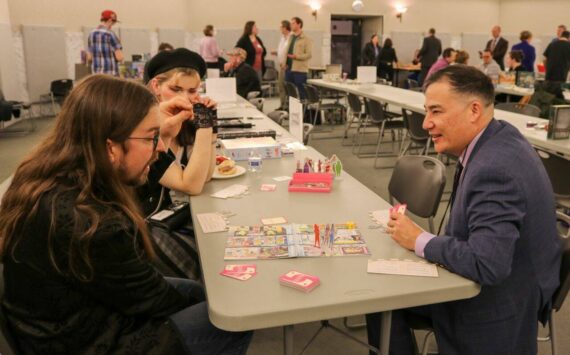By Morf Morford
Tacoma Daily Index
You don’t need to be an urban design professional to see that Tacoma is changing – its streets, its landscape, its character and identity are changing as never before.
I was born and raised in Tacoma and I find myself increasingly drawn to those characteristics that are NOT changing.
As we all know, Tacoma suffers from “Little Sister Syndrome” – everything Tacoma attempts is compared to what Seattle has already done.
Cities, like individuals, are defined by their surroundings and circumstances – our overall sense of identity comes together like a patchwork quilt defined by where we fit into the world.
Each one of us is someone’s child, someone’s neighbor; a member of some community or religious tradition. We are the work we do, the dogs we have, the places we’ve lived, the music we listen to, the teams we cheer for and authors we keep on our shelves.
Sometimes we bond especially strongly with some of our associations, such as family, a military group, or a religion. We say we can’t imagine existing without a certain person or life experience. Even in cases of extreme cultural identification, however, people typically maintain a sense of their own individual identity.
This is not always true however.
In disagreements over politics or religion, for example, many people believe they can change someone else’s mind with a thoughtful-enough argument.
Under normal conditions that’s the case; people are willing to challenge their group identities, albeit reluctantly.
Sometimes though, in our hyper-sensitized state, a perceived challenge to the group’s ideology is a challenge to the self. Arguments about climate change or race relations, for example, might not actually be about climate change or race, and instead about people protecting their basic sense of identity, order and consistency.
I have friends, for example, who cannot accept even the slightest hint that humans might be impacting climate because “God is in control”.
For these people, any actual evidence, or even personal experience is irrelevant. Their “beliefs” override even what they see directly.
And for most people I know who use this response, there is a major disconnect between this divine control and personal responsibility.
For many individuals, their adherence to their beliefs are even more powerful than what they have previously known or believed. Or valued.
We see this in people whose values become subsumed by an extreme cause or a persuasive leader – a cult figure for example.
And we, as individuals, or as members of a community will do almost anything – fight to the death sometimes – to preserve and protect our sense of identity.
This is difficult and complicated enough for an individual – for a city it is nearly impossible to confront and deal with directly.


2009 NAIP Imagery and LiDAR OBIA-based Canopy Cover for Tacoma, WA courtesy: University of Washington
Tacoma struggles against a “not good enough” self image – one that keeps it from stepping into new territory and keeps us looking over at Seattle, almost to ask for permission or approval.
We don’t need permission or approval – or even another city as a model or template.
No city can even begin to match the resources we have here. From world class natural recreation within reach, and certainly within sight, whether on water, in forests, on beaches or mountains to urban possibilities of entrepreneurship and community building, we have industrial warehouse space aplenty and strong neighborhood groups and immediately local opportunities for involvement.
We have parks and schools that are internationally recognized. (1*)
It is not that we don’t need any other cites (though, actually we don’t) or that we don’t care what other cities think of us (sometimes, in some situations, we do).
Other cities have their own histories, resources and possibilities.
Some policies work well in other cities and may – or may not – work for us.
Tacoma is not Seattle. In fact Tacoma is not the Tacoma of five – or ten – or even two years ago.
Tacoma is a unique place – and I’d put it on the extreme end of almost any scale of difficulty and potential possibility.
Like any city, we have a history of challenges and opportunities seized – and lost. Deceptions, betrayals and accomplishments are uniquely our own.
Our literal landscape is a shape and pattern like no other. Our geography is as convoluted and varied as our civic history.
Those outside of Tacoma should know a few basics (2*) but we, seeing Tacoma from the inside, know that yes, destiny is part of our name, and no we have not fully lived up to what we all know we can become.
What we “believe” about Tacoma has a huge influence on how we perceive and respond to both opportunities here and how others perceive us.
The question becomes, as with individual beliefs about politics and religion, can we listen respectfully to those of other experiences and values, and maybe, just maybe, be willing to change our minds?
(1*) Most recently, Metro Parks Tacoma has won the prestigious 2019 National Gold Medal Award for Excellence in Park and Recreation Management, the top achievement in the industry.
(2*) Like these – https://crosscut.com/2014/06/5-things-about-tacoma-benjamin-anderstone







